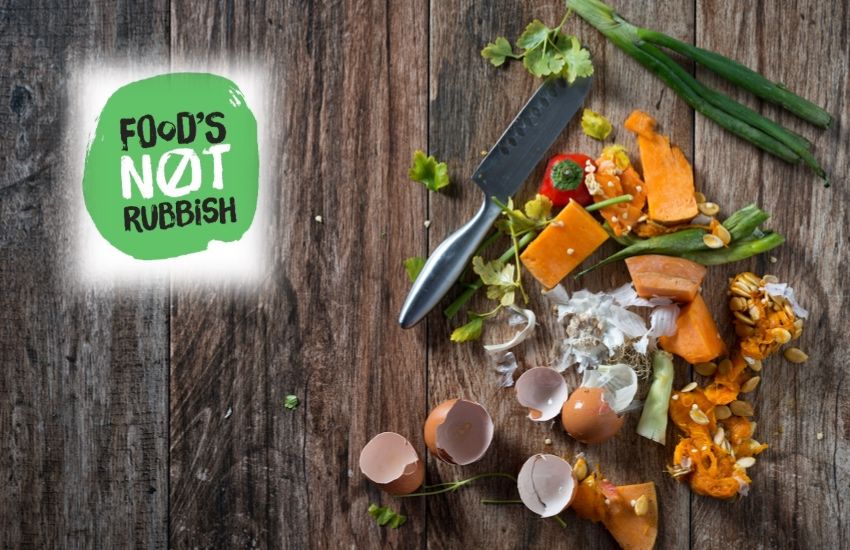

Guernsey Waste is supporting a hard-hitting campaign as part of the UK’s second annual Food Waste Action Week which begins today, Monday 7 March.
The UK campaign aims to raise awareness of the huge impact of household food waste on climate change and share practical advice, food savvy behaviours and tips on how we can all easily reduce the food we waste in our homes.
Cutting down on avoidable food waste is one of the single biggest contributions that islanders can make towards reducing carbon emissions – and potentially save hundreds of pounds at the same time.
The amount of food waste collected from households each day is equivalent in weight to two elephants, and Guernsey Waste estimates this is costing islanders more than £10 million a year1. The main reasons are that it was not eaten in time, or too much was cooked.
Love Food Hate Waste runs an annual survey of people’s habits and knowledge around food waste. This highlighted that 81% of UK citizens are concerned about climate change, but only 32% see a clear link with food waste. The survey helped to inform the theme of the Week and the development of materials to motivate people to act. This year, Love Food Hate Waste found that the public’s relationship with its freezers has become particularly frosty with many people not knowing how to safely freeze and defrost their food.
Waste and Prevention Officer, Tina Norman-Ross said, “Getting to grips with freezing and defrosting are big factors in preventing food from going to waste at home. At a time of rising food prices alongside huge public concern about climate change, tackling food waste at home is one way we can all make a difference and save money. For the average family with children, the cost of binning food can be more than £700 per year. So, Food Waste Action Week is all about avoiding being savvy in how we store but then use our food.”
Love Food Hate Waste is keen to show that used properly, the freezer is the king of the kitchen. In fact, freezing and defrosting just three key meat items that are commonly not used in time (fresh chicken, bacon, and sausages) could reduce waste of those items by as much as 15,000 tonnes in the UK per annum. And, when it comes to defrosting, busy households can avoid a lengthy overnight defrost by using their microwave instead – as people use a toaster to defrost sliced bread from the freezer.
Guernsey Waste’s ‘Food is Not Rubbish’ campaign aims to highlight just how much food is currently being thrown away, Mrs Norman-Ross said the current focus on climate change meant it was a good time to highlight this.
“The really startling statistic is if you think of food waste as a country, it would be the third biggest contributor to the world’s greenhouse gas emissions, behind the USA and China. That is the scale of the problem, but it only takes small changes to reduce our own waste, and those translate into big savings,” she said.
“Last year we collected nearly 3,500 tonnes of food waste, just from households, and it is not all eggshells and vegetable peelings. Most of it was perfectly good, had it been eaten in time, or if the right amount had been cooked. And islanders can see for themselves how much is going in their food waste and are starting to appreciate how much it is costing."
Islanders can find lots of advice and handy tips for reducing food waste at www.lovefoodhatewaste.gg web page, and by following Guernsey Waste on social media @Recycleforgsy.